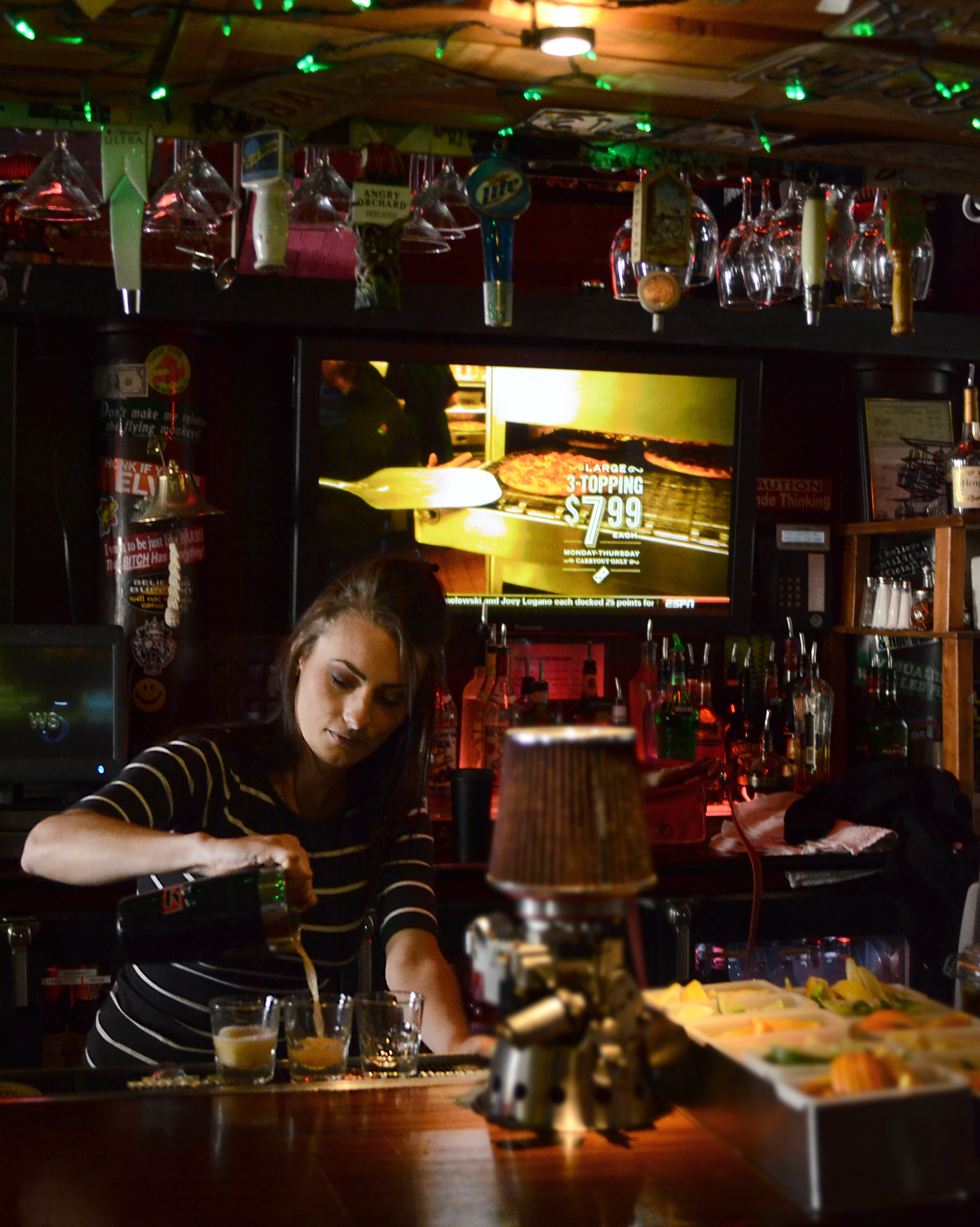Ramsey Ugarte: Extending hours of alcohol service could yield economic, social benefits

Angelita Roman, 25, pours a drink at Barney’s Beanery in Westwood Village. Senate Bill 635, legislation proposed by Calif. Sen. Mark Leno (D-San Francisco) would allow bars, restaurants and nightclubs to serve alcohol as late as 4 a.m.
By Ramsey Ugarte
April 18, 2013 12:01 a.m.
I’ve been sitting on a bar stool since elementary school.
This wasn’t the product of lenient parenting or lax ID checks, but rather because since the first grade I was asked to lend a hand – washing dishes, wiping tables and playing pool – at my father’s pub, The Publick House.
Bars and restaurants in South Carolina, my home state, have historically been able to stay open as late as they wanted, and bars there can still stay open late, provided they meet certain city requirements – an option unavailable to most bars and restaurants in California.
But that may change with Senate Bill 635, legislation proposed by Calif. Sen. Mark Leno (D-San Francisco) that would allow cities and counties in California the option to extend bar, restaurant and nightclub hours to serve alcohol as late as 4 a.m. instead of the current 2 a.m. restriction.
For California, the need for the change appears obvious – certain areas in tourist-heavy San Francisco and Los Angeles, especially Hollywood and Santa Monica, certainly have sufficient demand for a 4 a.m. last call, similar to that in comparable cities like New York, Miami, Las Vegas and New Orleans.
Skeptics might be wary of allowing bar-goers two extra hours with a pint glass in hand. But from what I’ve seen during my time at The Publick House, the people perched on bar stools past 2 a.m. are almost always regulars – a few familiar faces just not ready to go home.
Westwood is a prime example of an area that would benefit from extended hours of alcohol service.
Our immediate late-night bar scene in Westwood, which includes popular student stomping grounds like O’Hara’s and the Westwood Brewing Company, would profit socially and economically from a revised last-call time.
A later call time not only provides flexibility for businesses but also the opportunity for a young demographic with unpredictable schedules the chance to enjoy Westwood throughout the night.
On a state level, major metropolitan centers like Los Angeles, San Francisco and San Diego deserve more flexibility in regulating how businesses are run and how they accommodate their clientele both during the day and at night.
But a later closing time comes with some pragmatic difficulties. Most importantly, it could add stress to police departments that would likely have to increase local patrols at odd hours and could face a potential jump in instances of drunk driving.
However, these problems are largely speculative and contingent on the specific characteristics of local areas. Driving is less common in North Village, and most students walk to Westwood Village and back home for a night out.
These safety concerns, while serious, do not justify the current blanket policy that effectively bars the freedom of small businesses. Free-market thinking suggests that later hours would naturally exist primarily in specific areas with populations already inclined to stay out late.
A later closing time here in Westwood has the potential to encourage a safer drinking environment where students, with the knowledge they would be able to stay later at the bar, would not feel the need to drink heavily before going out, said George Workman, general manager of Westwood Brewing Company.
It is hard to pin down the unintended consequences of extended hours of service, but what is clear is that in an area like Westwood, there are clear social and economic benefits to this policy.
After all, businesses that have invested in their community should be able to tailor their policies to their proximate audience.
And if SB 635 passes, I look forward to finding my way back to a late-night bar stool, feeling a little closer to home.


